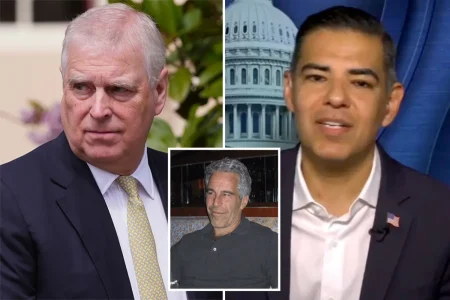British Government Voices Alarm Over Farage’s Congressional Visit Linked to Anti-Abortion Group
Controversy Erupts as Reform UK Leader’s U.S. Appearance Raises Questions About Foreign Influence
In a strongly worded statement that has intensified the already contentious relationship between mainstream British politics and the populist Reform UK movement, government officials expressed significant concern regarding Nigel Farage’s recent appearance before the United States Congress. The controversy centers not merely on the content of Farage’s address, but on the revelation that his invitation was facilitated by an organization with deep ties to the successful campaign to overturn Roe v. Wade, the landmark ruling that had protected abortion rights in America for nearly half a century.
“It is deeply concerning that Mr. Farage’s congressional platform was arranged through an entity that played a pivotal role in dismantling fundamental reproductive rights in the United States,” said a spokesperson for the governing party, who requested anonymity due to the diplomatic sensitivity of the matter. “When British political figures engage with foreign legislative bodies through organizations with explicit ideological agendas, questions naturally arise about transparency, influence, and the potential importation of divisive culture wars into our domestic politics.” The statement marks an escalation in rhetoric from a government already grappling with Farage’s rising popularity and Reform UK’s growing electoral significance, particularly among voters disillusioned with traditional political parties.
The organization in question—whose name officials declined to specify in their public statements but which investigation reveals to be the Heritage Foundation, a conservative American think tank—has long championed efforts to restrict abortion access across the United States. Its legal strategists provided crucial frameworks that ultimately contributed to the Supreme Court’s 2022 Dobbs decision, which effectively ended federal protection for abortion rights. Political analysts suggest this connection is particularly problematic given Britain’s broadly pro-choice consensus across the political spectrum, with abortion access largely considered settled policy despite occasional parliamentary debates about specific regulations. “Even Conservative MPs who personally oppose abortion on moral grounds typically avoid American-style abortion politics,” noted Dr. Eleanor Wilkinson, professor of political science at King’s College London. “The suggestion that Farage is aligning with American anti-abortion activism represents a significant departure from British political norms.”
The Transatlantic Conservative Alliance and Its Implications for British Politics
Farage, the charismatic and controversial figure who rose to prominence as the face of the Brexit movement, has increasingly sought to position himself within a broader international conservative movement. His appearance before Congress, which focused primarily on immigration policy and national sovereignty, received limited coverage in mainstream British media but generated substantial engagement across social media platforms and conservative news outlets. When questioned about the governing party’s concerns, a Reform UK spokesperson characterized the criticism as “desperate deflection from a failing government” and insisted that Farage’s congressional testimony focused exclusively on “defending democratic sovereignty and exposing the dangers of uncontrolled immigration”—making no mention of reproductive rights or social policy.
However, political observers note that the controversy highlights growing concerns about the transnational nature of conservative politics and the potential importation of American culture war issues into British electoral discourse. “What we’re witnessing is the continuation of a pattern that began during the Brexit campaign,” explained Dr. Jasmine Phillips, author of “Populism Across Borders: The New Nationalist International.” “Farage has consistently drawn inspiration, tactics, and sometimes funding from American conservative networks. The question now is whether this includes adopting positions on social issues that have traditionally found little traction in British politics.” Recent polling suggests that while Reform UK has successfully captured significant support on immigration and economic nationalism, British voters across the political spectrum remain largely supportive of reproductive rights, with even conservative-leaning voters typically favoring the existing framework of legal abortion access within certain parameters.
The timing of this controversy is particularly significant as Britain approaches a general election widely expected within the next twelve months. Reform UK has been steadily gaining in polls, with some surveys suggesting the party could capture enough of the traditional Conservative vote to fundamentally alter the electoral math. “Farage has masterfully positioned himself as a champion of forgotten voters and common sense politics,” said political strategist Marcus Bennett. “But this connection to American abortion politics potentially undermines that carefully cultivated image. British voters tend to view American culture wars with skepticism, and even those attracted to Reform UK’s immigration stance might balk at importing American approaches to reproductive rights.”
Broader Implications for Democratic Norms and International Relations
Beyond the immediate political fallout, experts in international relations suggest the controversy raises important questions about democratic norms and cross-border political influence. “There’s a fundamental tension here between the legitimate exchange of ideas across democratic nations and concerning patterns of ideological exportation,” said Professor Victoria Montgomery of the Institute for Global Democracy. “When political figures bypass traditional diplomatic channels to align with ideological organizations in foreign legislatures, it challenges conventional understandings of how democratic nations should interact.” This concern appears particularly acute given ongoing investigations in multiple countries regarding foreign interference in domestic democratic processes.
The Foreign Office has remained notably silent on the matter, consistent with its traditional reluctance to comment on the international activities of opposition politicians. However, several parliamentary committees have indicated interest in examining the broader question of foreign political influence, with one senior committee member noting that “while we fully support international dialogue and the free exchange of ideas, there must be transparency about who is facilitating these exchanges and to what end.” Legal experts note that while Farage’s congressional appearance broke no laws, it represents a growing trend of non-governmental actors creating parallel diplomatic channels that operate outside traditional oversight.
As this story continues to develop, it highlights the evolving nature of politics in an increasingly interconnected world. The boundaries between domestic and international politics have grown increasingly porous, creating new challenges for democratic governance and electoral integrity. Whether this controversy will significantly impact Reform UK’s electoral prospects remains to be seen, but it undoubtedly adds a new dimension to Britain’s already complex political landscape. With traditional parties struggling to maintain voter loyalty and new movements challenging established norms, the question of foreign influence and ideological importation is likely to remain a contentious issue in British politics for the foreseeable future.
For citizens attempting to navigate this complex landscape, the controversy offers a reminder of the importance of scrutinizing not just what politicians say, but the networks and organizations that amplify their messages across borders. As Britain approaches its next electoral test, voters will need to consider not only domestic policies but also the international alignments that increasingly shape national politics in the twenty-first century.








